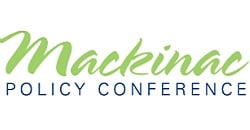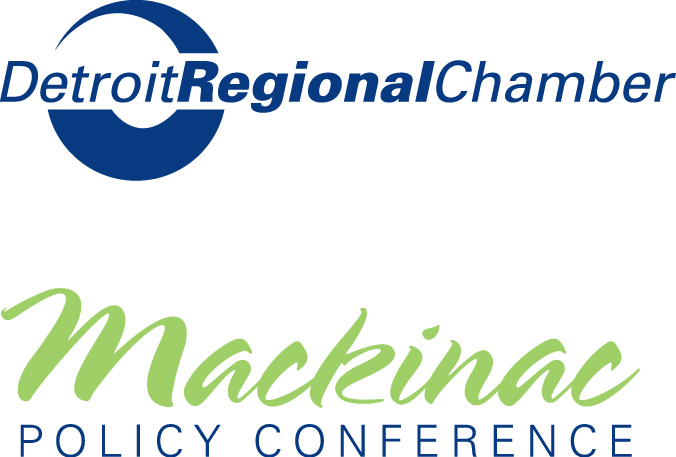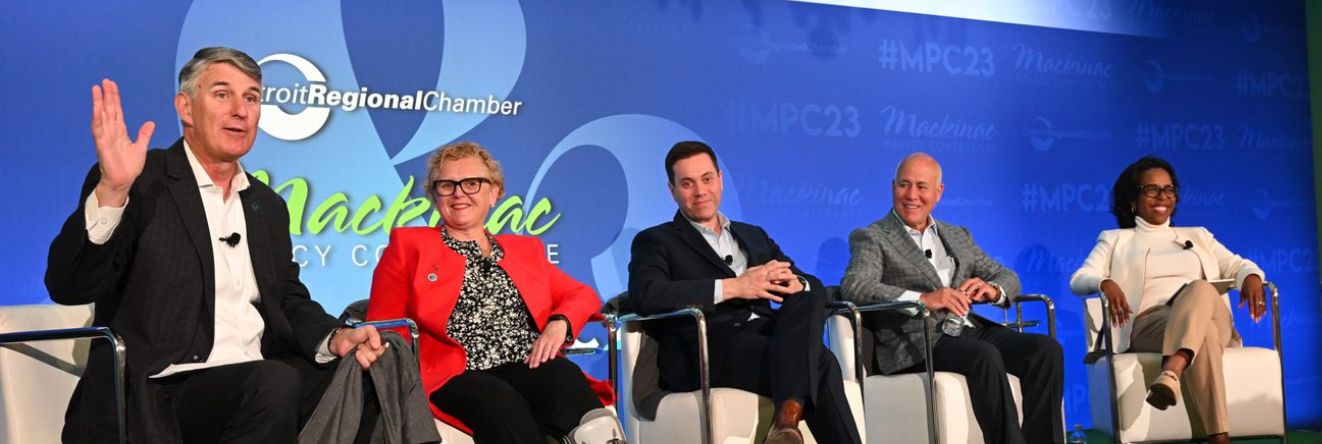
Key to Region Winning ‘Fierce Competition for Talent’
Key Takeaways:
- Michigan must continue to be a welcoming place for immigrant talent of all levels.
- Winning the talent competition requires embracing untraditional methods and different kinds of educational levels while building a talent pipeline within your organization.
- For Michigan to stay competitive, there needs to be considerable more attention to K-12 education, along with postsecondary credential and degree attainment.
Decreasing population, labor force participation rates, and postsecondary enrollment and completion rates are just some of the macro-trends that pose long-term headwinds for the Detroit Region and its employers. Hosted by Ralph C. Wilson, Jr. Foundation, the following experts showcased solutions and efforts underway on how to regionally address challenges in our talent development infrastructure for long-term economic stability and growth.
Kicking off the discussion, Dave Egner, President and Chief Executive Officer, Ralph C. Wilson, Jr. Foundation, took a temperature gauge of the panelists and how Michigan is doing in this fierce competition for talent, which does not appear great at first sight.
As Jeff Donofrio, President and Chief Executive Officer, Business Leaders for Michigan put it, it is not that Detroit is completely stagnant, “other states just grew quicker” with types of talent and education levels.
However, the panelists shared plenty of optimism to offer and implement solutions to get Michigan growing faster and back in the game — starting at the top with new or expanding efforts from the government and existing systems that address everyday issues from residents.
“We have this unique vantage point because we’re on the ground solving the challenges…so that gives us a unique perspective and opportunity,” said Nicole Sherard-Freeman, Group Executive, Jobs, Economy, and Detroit at Work, City of Detroit. “What we’re focusing right now on is creating supply….we have to meet people right where they are and [meet] their everyday challenges.”
This includes expanding educational opportunities, like Michigan Reconnect and the Detroit Regional Chamber’s Detroit Reconnect, and addressing other needs like providing child care and universal pre-K, which are some priorities Susan Corbin, Director, Michigan Department of Labor and Economic Opportunity, hopes will be included in the state’s 2023-24 budget.
“It’s exciting that we’re all working so cooperatively,” she said regarding all efforts within her sphere and her fellow panelists. “We have to also make sure there’s ‘well coordination’ in other initiatives [like housing].”
An additional consideration for improving Michigan’s talent gap quicker is to have better consideration and focus on immigration.
According to Donofrio, more than 70 percent of immigrants that could be Michigan talent have some kind of postsecondary education. Therefore, he, as well as the other panelists, implored the audience to embrace immigrant workers.
“We have to make Michigan a destination for immigrants, it’s the only way we can grow,” Donofrio said. “There’s not going to be enough births…Michigan has to be a beacon of opportunity. I think we should do everything possible to make sure…they are welcomed.”
Adding on, Dave Meador, Executive Director, Detroit Regional CEO Group recalled his time as chief executive officer of DTE Energy, where he and his team were able to partner with various Detroit neighborhoods and even some Michigan prisons to create an apprenticeship program to grow and develop diverse talent.
“We can’t just sit back and rely on a system that’s not working,” he said. “We have to create our own system.”
This Mackinac Policy Conference session was hosted by Ralph C. Wilson, Jr. Foundation.















